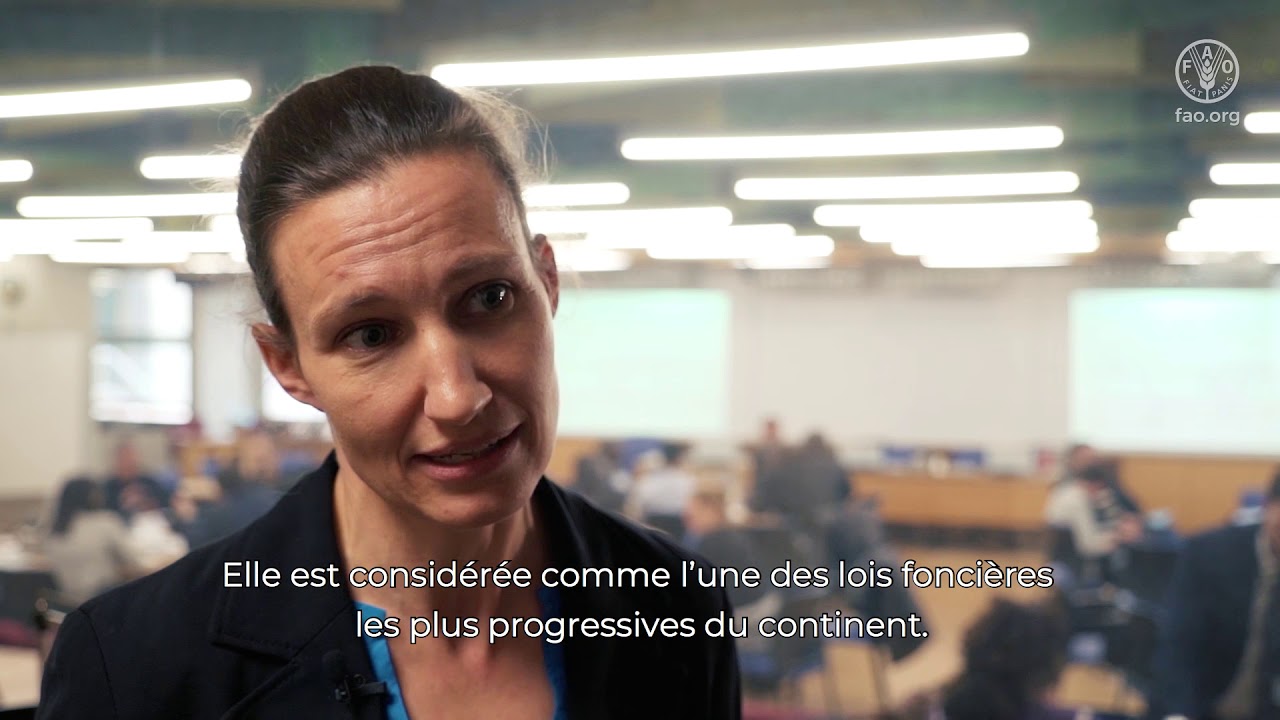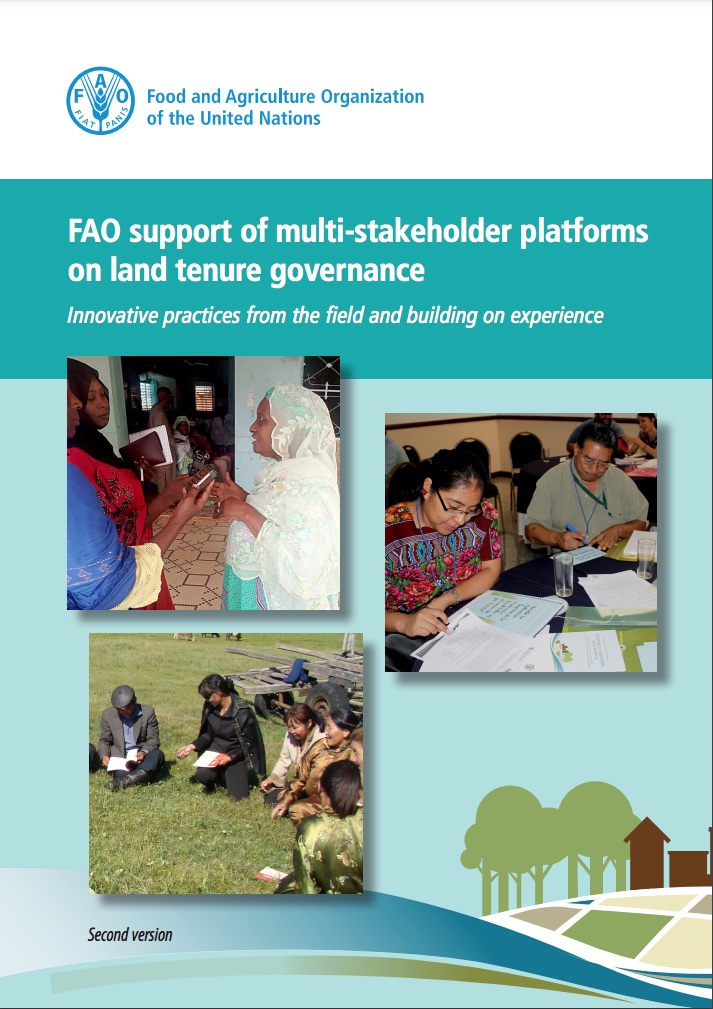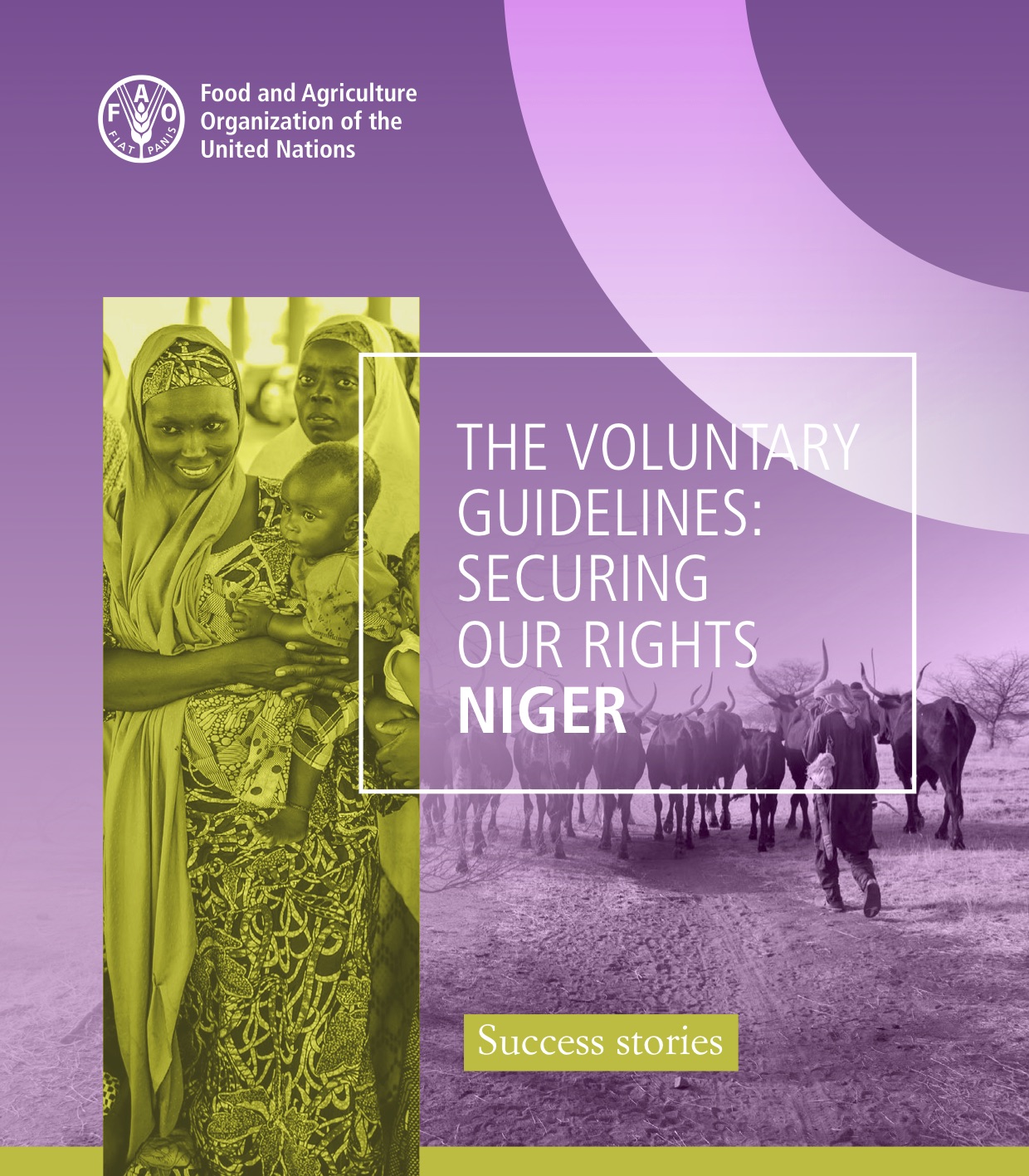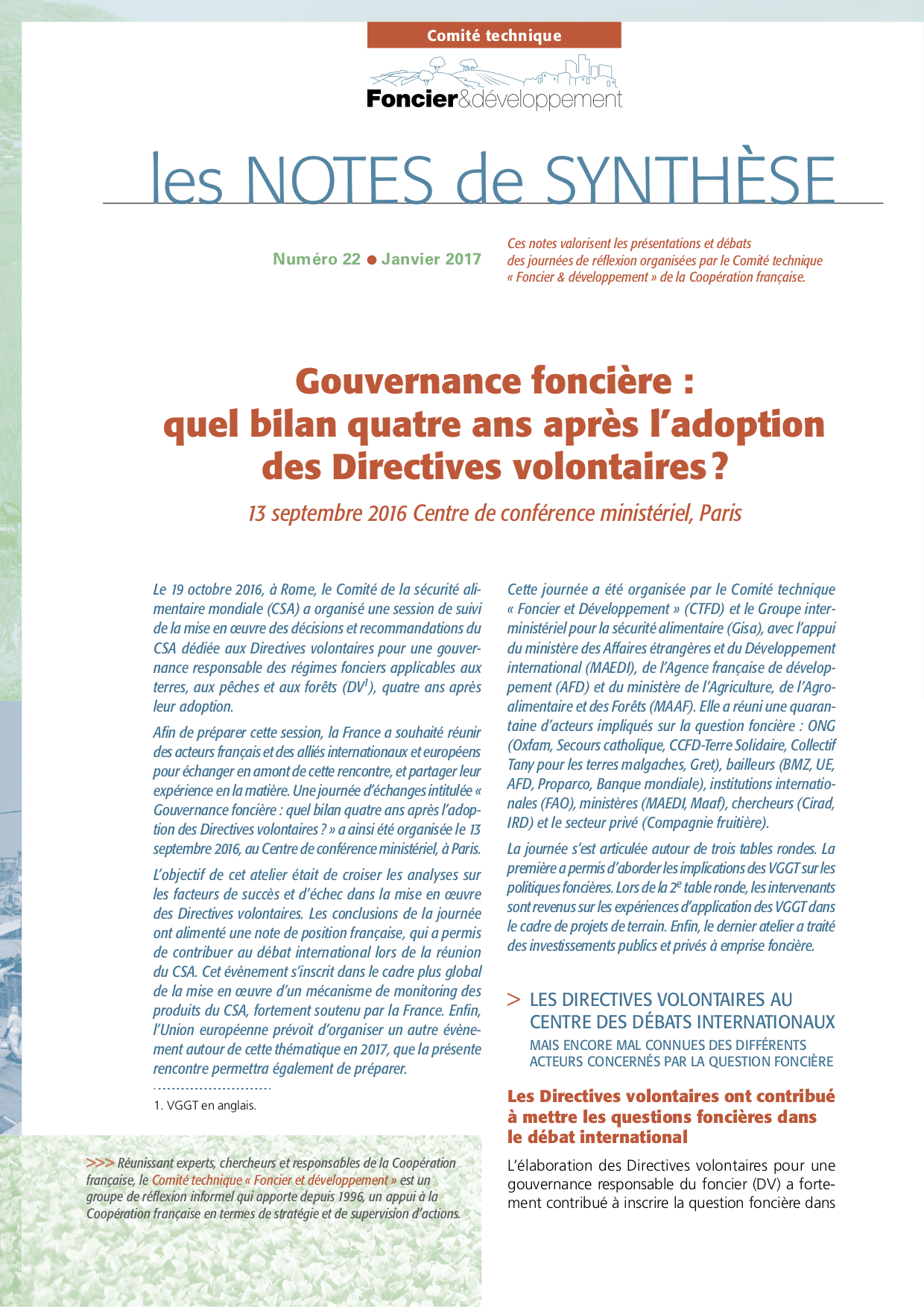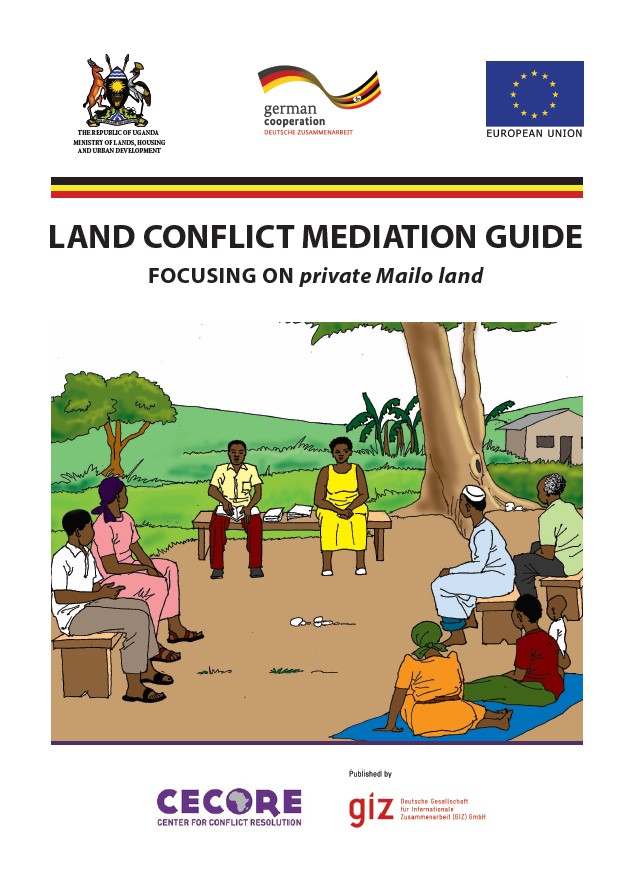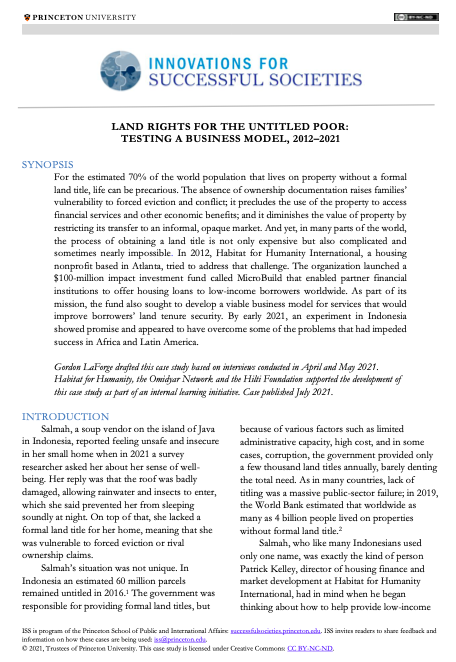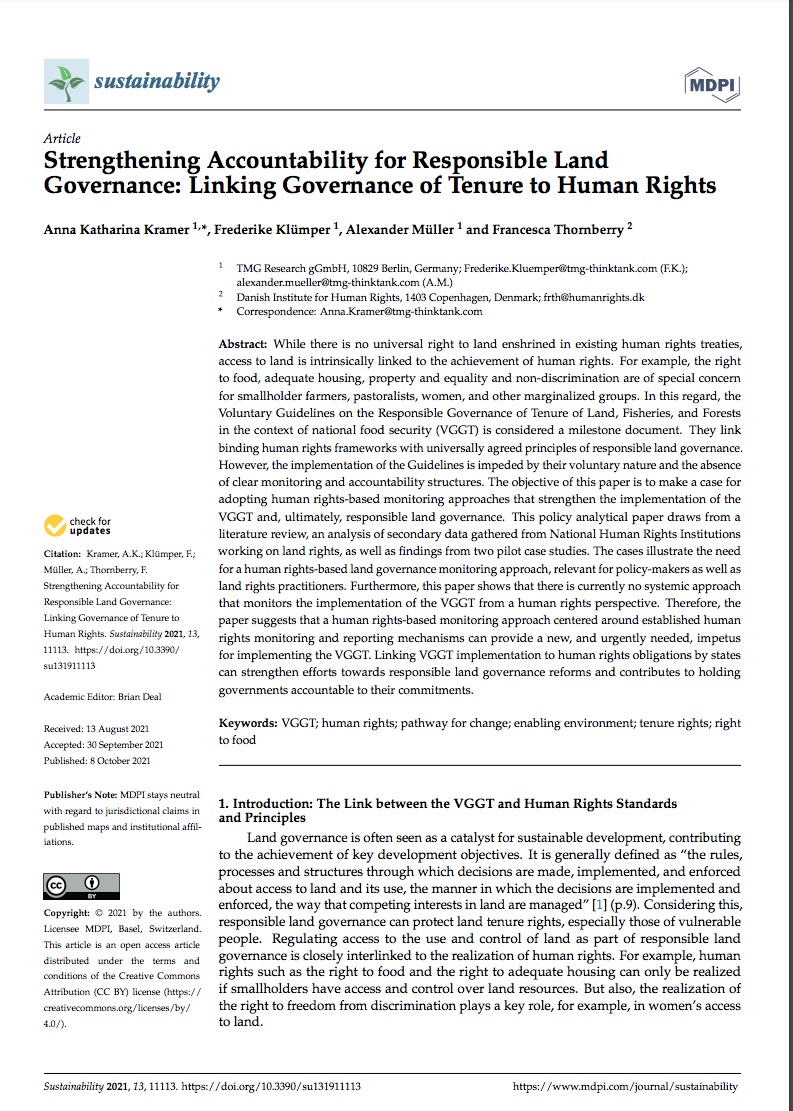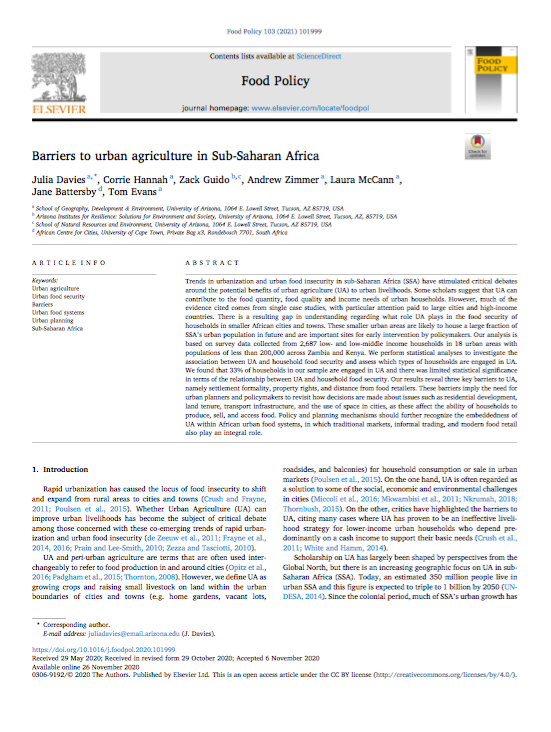land tenure
AGROVOC URI: http://aims.fao.org/aos/agrovoc/c_12069
FAO support of multi-stakeholder platforms on land tenure governance
As part of the efforts to find sustainable solutions to complex land tenure issues, multi-stakeholder platforms (MSPs) create an inclusive forum where actors can discuss problems and propose solutions to improve governance of tenure and provide better access to natural resources. This publication highlights how MSPs at regional, national and local level demonstrate forward thinking, including innovative practices and approaches to respond to the above mentioned social challenges, for the benefit of all.
The Voluntary Guidelines: Securing our rights - Niger
The Voluntary Guidelines on the Responsible Governance of Tenure of Land, Fisheries and Forests in the Context of National Food Security (VGGT) were endorsed by the Committee on World Food Security in May 2012. These Voluntary Guidelines have been described as a catalyst leading to improvements in conditions under which land is held or occupied in agricultural sectors. The Voluntary Guidelines address problems of weak governance of tenure and the growing pressure on natural resources, providing the basis for countries to achieve food security for all.
The Voluntary Guidelines: Securing our rights - Mongolia
FAO’s Voluntary Guidelines on the Responsible Governance of Tenure of Land, Fisheries and Forests in the Context of National Food Security (VGGT) were endorsed by the Committee on World Food Security in May 2012. These Voluntary Guidelines have been described as a catalyst leading to improvements in the conditions under which land is held or occupied in the agriculture sectors. The Guidelines address problems of weak governance of tenure and the growing pressure on natural resources, thereby assisting countries to achieve food security for all.
Improving Governance of Tenure in Policy and Practice: A Conceptual Basis to Analyze Multi-Stakeholder Partnerships for Multi-Stakeholder Transformative Governance Illustrated with an Example from South Africa
Tenure governance is a complex and multi-dimensional issue that requires cross-sectoral and holistic approaches, gathering the resources, information and expert skills of a variety of actors while exploring innovative, polycentric multi-stakeholder governance arrangements to address collective action challenges. To do this, multi-stakeholder partnerships are formed where public and private partners pool their resources and competencies to address mutual goals more effectively.
Gouvernance foncière
Le 19 octobre 2016, à Rome, le Comité de la sécurité alimentaire mondiale (CSA) a organisé une session de suivi de la mise en œuvre des décisions et recommandations du CSA dédiée aux Directives volontaires pour une gouvernance responsable des régimes fonciers applicables aux terres, aux pêches et aux forêts (DV1), quatre ans après leur adoption.
Land Conflict Mediation Guide - Focusing on private Mailo land
Land in Uganda is a delicate resource that has caused many conflicts over the past years. About 80% of pending court cases in the country relate to land today. Looking at the country’s violent history, a rising population and increasing impact of climate change on agriculture productivity, land rights in Uganda are contested to this day. Land conflicts are either within communities, family structures or between individuals and external players such as investors.
LAND RIGHTS FOR THE UNTITLED POOR: TESTING A BUSINESS MODEL, 2012–2021
For the estimated 70% of the world population that lives on property without a formal land title, life can be precarious. The absence of ownership documentation raises families’ vulnerability to forced eviction and conflict; it precludes the use of the property to access financial services and other economic benefits; and it diminishes the value of property by restricting its transfer to an informal, opaque market. And yet, in many parts of the world, the process of obtaining a land title is not only expensive but also complicated and sometimes nearly impossible.
Open Up Guide for Land Governance, Version 2.0 (following public comments)
The Open Up Guide on Land Governance is a resource aimed to be used by governments from developing countries to collect and release land-related data to improve data quality, availability, accessibility and use for improved citizen engagement, decision making and innovation. It sets out:
-
Key datasets for land management accountability, and how they should be collected, stored, shared and published for improving land governance and transparency;
Strengthening Accountability for Responsible Land Governance: Linking Governance of Tenure to Human Rights
In a new paper, written with a colleague from the Danish Institute for Human Rights, TMG researchers Anna Kramer and Frederike Klümper, and TMG Managing Director Alexander Müller, make a case for adopting human rights-based monitoring approaches that strengthen the implementation of the Voluntary Guidelines on the Responsible Governance of Tenure of Land, Fisheries, and Forests (VGGT), and ultimately support responsible land governance.
Barriers to urban agriculture in Sub-Saharan Africa
New land governance approaches in Mauritania and Tunisia: From VGGT principles to change
This paper presents how the active use and contextualisation of the principles of the
Voluntary Guidelines on the Responsible Governance of Tenure of Land, Fisheries and
Forests in the Context of National Food Security (VGGT) by national stakeholders in
Mauritania and Tunisia contributed to changing the approach to tackling tenure challenges
in the two member countries of the Maghreb Arab Union.
In Mauritania, we see how the model of establishing multi-stakeholder platforms (MSPs)

